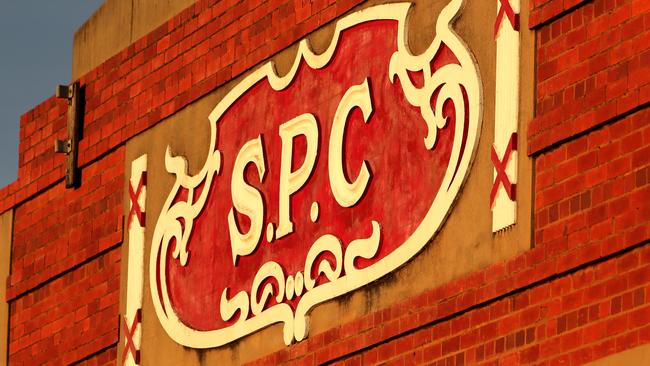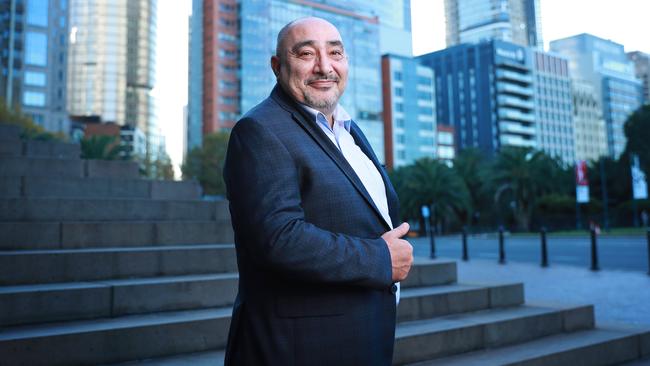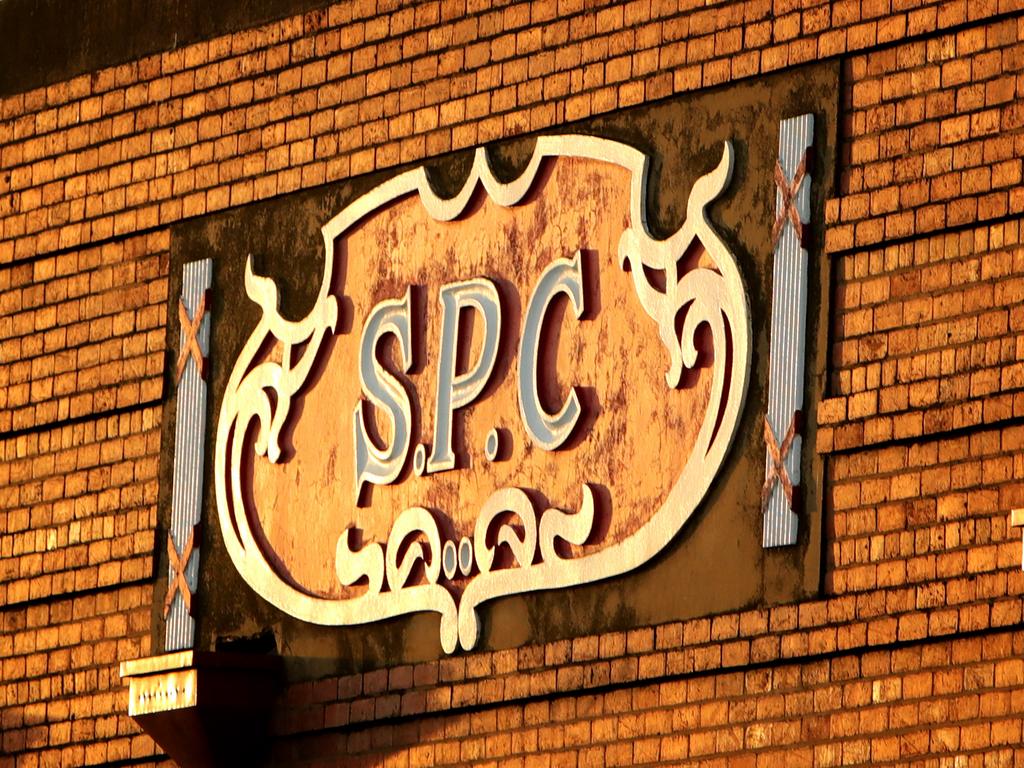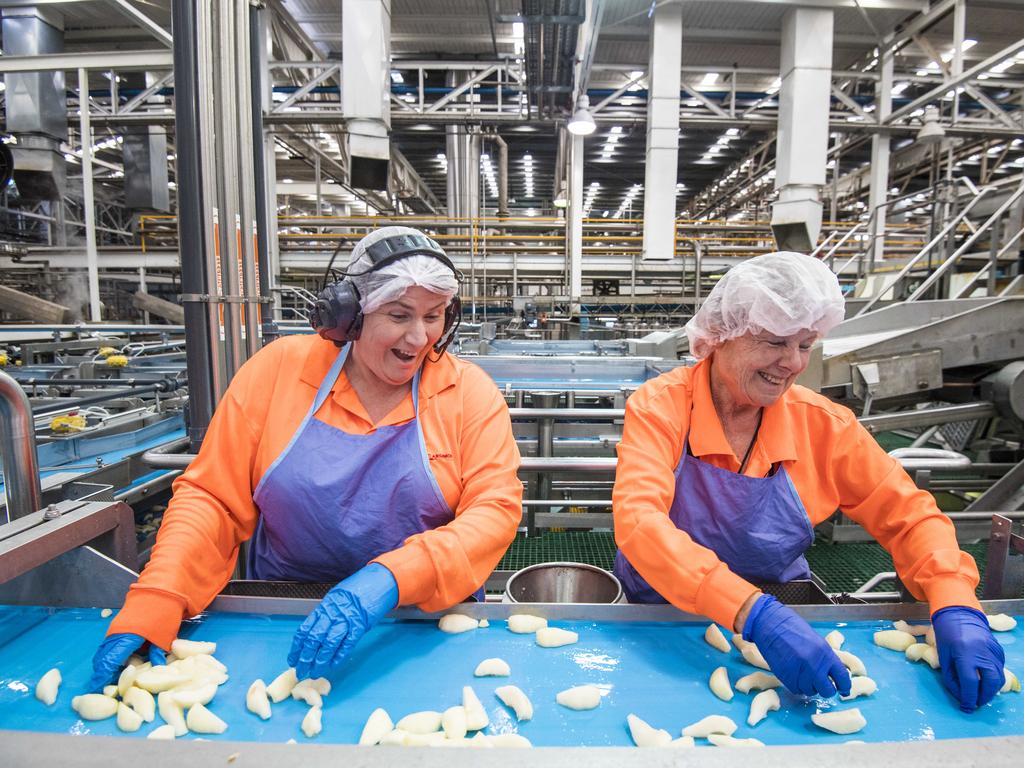Can-do SPC eyes expansion in $100m raising
SPC is making its first move into the frozen prepared-meal category and expanding its offshore operations.

One of the nation’s most iconic fruit and vegetable processors, the century-old SPC, is making its first move into the frozen prepared-meal category and expanding its offshore operations as it raises $100m from high net worth and institutional investors.
Over the past year SPC’s owners, Sydney-based private equity firms Perpetuity Capital and The Eights, have invested around $20m in information technology and systems after installing new management at SPC, and the $100m capital raising via a private share placement offer will value the Shepparton-based company at almost $260m.
SPC owns some of Australia’s most iconic, heritage food brands including SPC, Ardmona, Goulburn Valley and ProVital.
Perpetuity principal and SPC chairman Hussein Rifai said the move into the frozen food space was part of the next stage in the company’s evolution under private equity ownership. He said the capital raising would broaden SPC’s shareholder base ahead of a future float on the Australian Securities Exchange or an another international sharemarket.
Financial accounts released in documentation for the raising, obtained by The Australian, reveal SPC posted earnings before depreciation and amortisation (EBITDA) of $45.6m last year from revenue of $284.1m. This compares to a $13m loss two years ago. “We want to raise all the money in Australia to maintain as much Australian ownership as possible of this icon brand,’’ Mr Rifai said ahead of his appearance at The Australian’s annual Global Food Forum next week.
“We want to use the new funds to build our capital base and progress the expansion of the company to provide more stability to our revenue streams in both the Northern and Southern Hemisphere’s growing seasons, while expanding our sales channels and product categories.”

SPC last week signed a deal to take a controlling shareholding in Kuisine Group, a $30m Sydney-based business which manufactures high-quality prepared meals and finger foods through its subsidiaries the Kuisine Company, The Gluten Free Meal Company and The Good Meal Company.
The deal, which gives SPC the ability to increase its ownership of Kuisine to 100 per cent, will allow it to diversify into non-supermarket channels and develop a new range of health-related food products.
“This sector is not a seasonal business, so is counter-cyclical. It is also a distribution channel, which allows us to vertically integrate: we can sell our fruits and vegetables into this space. This is a natural extension for us. It is the first move into the frozen space,’’ Mr Rifai said.
In October 2019, Kuisine was awarded a second five-year contract to supply 72 per cent of ready meal requirements to the NSW Health hospital network.
At full rollout, this contract will require provision of 9 million meals per annum to NSW hospitals.
The Good Meal Co has also spent the past three years developing an online e-commerce platform dedicated to servicing NDIS and aged care home customers.
The acquisition of Kuisine comes after SPC’s recent agreement to acquire the Helping Humans business, which produces healthy beverages, post-mix, and fermented botanicals products.
Dates, jackfruit and pomegranates have also been added to the SPC product portfolio over the past 12 months, the latter through the purchase of the PomLife brand from Australian Pomegranate Growers.
In May SPC entered a joint venture with German natural ingredients powerhouse Dohler to develop intellectual property in Australia designed to deliver culinary experiences around the globe, marketing and selling new products through Dohler’s extensive international sales and distribution channels. “That is the first step of owning IP (intellectual property) that I can distribute worldwide,’’ Mr Rifai said.
The entrepreneur was largely unknown in Australian business circles before June last year when his Perpetuity Capital — which had previously invested in retailers, rubber recyclers, systems integrators and financial services companies — teamed with The Eights to pay $40m for SPC.
It was a fraction of the $750m former owner Coca-Cola Amatil paid for SPC in 2005 and came after CCA slashed the value of SPC by $146m to zero in the months before the sale, after struggling to compete with supermarket home brands.
Perpetuity, which manages its SPC investment through its wholly owned Perma Funds Management operation, has previously outlined plans to target export markets in the Asia-Pacific and Europe, the Middle East and North Africa for growth.
These plans were put on hold as the COVID-19 pandemic took hold, “but we are now looking at distribution agreements for export,’’ Mr Rifai said.






To join the conversation, please log in. Don't have an account? Register
Join the conversation, you are commenting as Logout